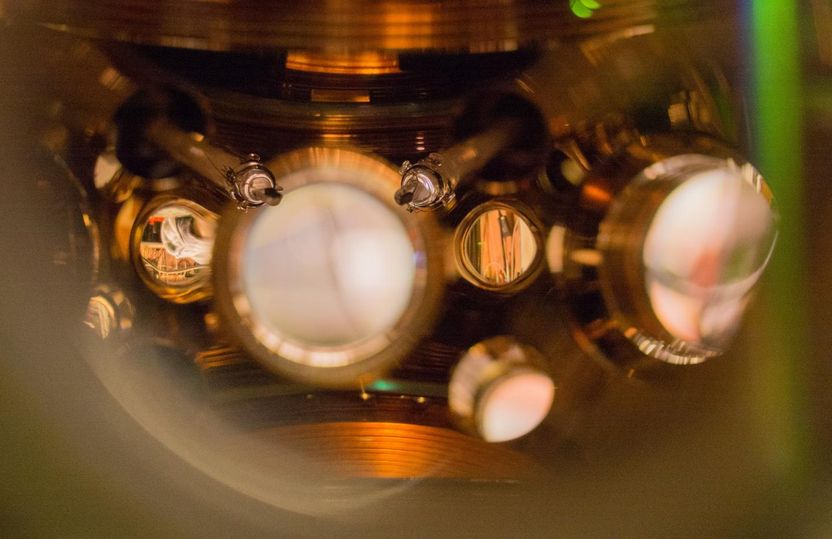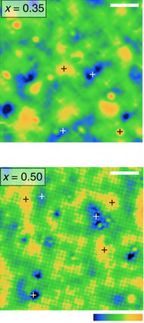Getting better all the time: JILA strontium atomic clock sets new records
Advertisement
In another advance at the far frontiers of timekeeping by National Institute of Standards and Technology (NIST) researchers, the latest modification of a record-setting strontium atomic clock has achieved precision and stability levels that now mean the clock would neither gain nor lose one second in some 15 billion years - roughly the age of the universe.

JILA's strontium lattice atomic clock now performs better than ever because scientists literally "take the temperature" of the atoms' environment. Two specialized thermometers, calibrated by NIST researchers and visible in the center of the photo, are inserted into the vacuum chamber containing a cloud of ultracold strontium atoms confined by lasers.
Marti/JILA
As described in Nature Communications, the experimental strontium lattice clock at JILA, a joint institute of NIST and the University of Colorado Boulder, is now more than three times as precise as it was last year, when it set the previous world record. Precision refers to how closely the clock approaches the true resonant frequency at which the strontium atoms oscillate between two electronic energy levels. The clock's stability-- how closely each tick matches every other tick--also has been improved by almost 50 percent, another world record.
The JILA clock is now good enough to measure tiny changes in the passage of time and the force of gravity at slightly different heights. Einstein predicted these effects in his theories of relativity, which mean, among other things, that clocks tick faster at higher elevations. Many scientists have demonstrated this, but with less sensitive techniques.
Most read news
Organizations
Other news from the department science

Get the chemical industry in your inbox
By submitting this form you agree that LUMITOS AG will send you the newsletter(s) selected above by email. Your data will not be passed on to third parties. Your data will be stored and processed in accordance with our data protection regulations. LUMITOS may contact you by email for the purpose of advertising or market and opinion surveys. You can revoke your consent at any time without giving reasons to LUMITOS AG, Ernst-Augustin-Str. 2, 12489 Berlin, Germany or by e-mail at revoke@lumitos.com with effect for the future. In addition, each email contains a link to unsubscribe from the corresponding newsletter.






























































